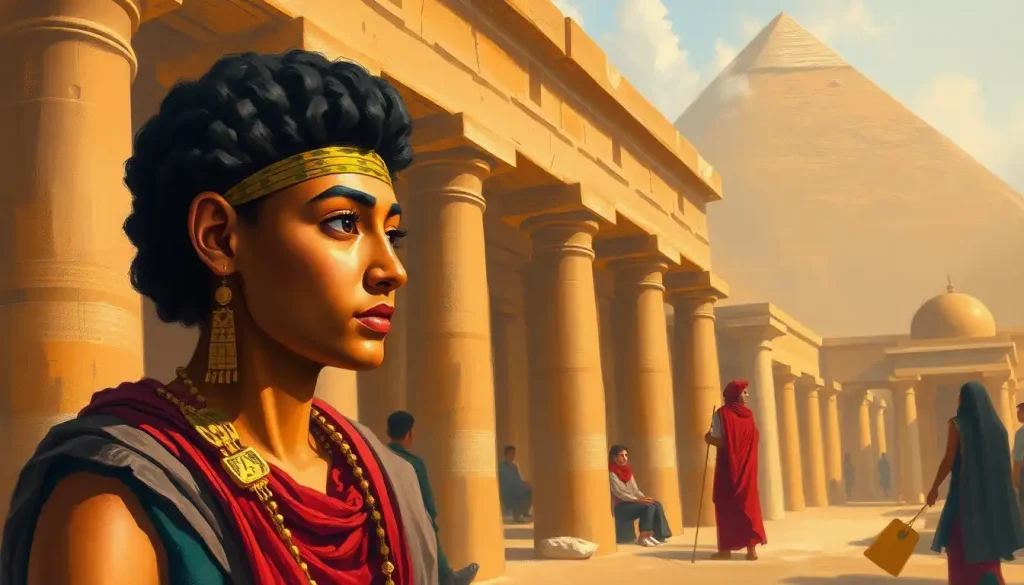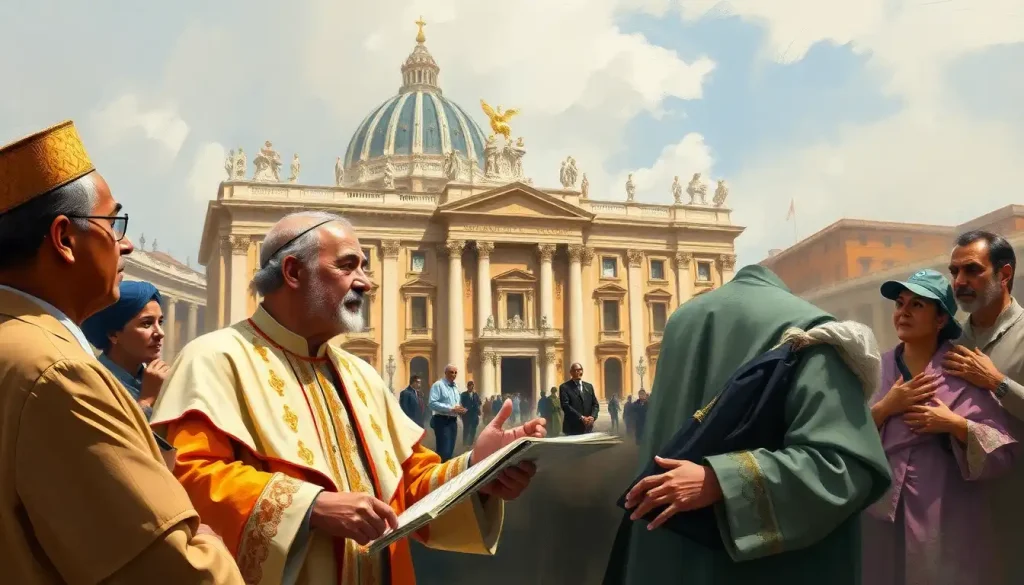Through the ages, spiritual leaders and economists have clashed over a provocative biblical promise: that the riches of wrongdoers will ultimately find their way into righteous hands. This intriguing concept, deeply rooted in ancient wisdom, continues to spark heated debates in our modern world. It challenges our understanding of wealth, morality, and the very fabric of society itself.
The notion that “the wealth of the wicked is laid up for the righteous” is not just a catchy phrase. It’s a profound statement that has echoed through millennia, shaping the beliefs and actions of countless individuals and communities. But what does it really mean? And how does it apply to our complex, interconnected global economy?
The Biblical Foundation: Unveiling the Origins
To truly grasp the significance of this concept, we must first delve into its biblical roots. The phrase “the wealth of the wicked is laid up for the righteous” comes from Proverbs 13:22 in the Old Testament. In its original Hebrew, the verse reads: “טוֹב יַנְחִיל בְּנֵי-בָנִים; וְצָפוּן לַצַּדִּיק, חֵיל חוֹטֵא” (tov yanchil b’nei vanim; v’tzafun latzadik, cheil chotei).
Translated literally, it means: “A good man leaves an inheritance to his children’s children, but the wealth of the sinner is stored up for the righteous.” This proverb, attributed to King Solomon, is part of a larger collection of wisdom literature in the Bible.
The historical and cultural context of this proverb is crucial to its understanding. In ancient Israelite society, wealth was often seen as a sign of God’s blessing, while poverty could be viewed as a consequence of sin or divine disfavor. However, this simplistic view is challenged throughout the Bible, particularly in books like Job and Ecclesiastes.
Different denominations have interpreted this verse in various ways. Some take it as a literal promise of material wealth transfer, while others see it as a metaphor for spiritual blessings. The The Wealth of the Wicked KJV: Biblical Insights on Righteous Inheritance offers a deeper exploration of these interpretations.
Unpacking the Concept: Who Are the ‘Wicked’ and the ‘Just’?
To fully grasp the implications of this proverb, we need to understand what the Bible means by “wicked” and “just.” In biblical terms, the “wicked” aren’t necessarily cartoon villains twirling their mustaches. They’re often described as those who disregard God’s laws, exploit others for personal gain, and prioritize material wealth over spiritual and moral values.
On the flip side, the “just” or “righteous” are those who strive to live according to God’s principles. They’re characterized by integrity, compassion, and a commitment to justice. It’s important to note that this doesn’t imply perfection – even the most righteous figures in the Bible had their flaws.
The economic implications of this concept are far-reaching. If taken literally, it suggests a divine mechanism for wealth redistribution. This idea has been used to justify various economic systems, from socialist-leaning models to prosperity gospel teachings. However, it’s crucial to approach these interpretations with caution and critical thinking.
Morally and ethically, this concept raises complex questions. Is it just for wealth to be redistributed based on moral character? How do we define and measure righteousness in a diverse, pluralistic society? These are not easy questions to answer, and they’ve fueled countless debates among theologians, philosophers, and economists.
The Wealth of the Wicked in Our Modern World
Fast forward to the 21st century, and we see numerous examples that seem to echo this ancient proverb. Corporate scandals, where ill-gotten gains are seized and redistributed, might be seen as a modern manifestation of this principle. The rise of ethical investing and consumer activism also reflects a growing desire to align wealth with moral values.
However, our world is also marked by stark socioeconomic disparities. The gap between the ultra-wealthy and the poor continues to widen, raising questions about the fairness of our economic systems. Some argue that this inequality is a sign that we’ve strayed from biblical principles of economic justice.
The debate on wealth redistribution in modern society is heated and complex. Some view progressive taxation and social welfare programs as ways to “lay up” the wealth of the wicked for the benefit of the broader community. Others argue that such policies stifle economic growth and individual liberty.
Biblical Justice and Modern Economics: Finding Common Ground
The Old Testament contains numerous laws aimed at ensuring economic justice. The concept of the Jubilee Year, where debts were forgiven and land returned to its original owners every 50 years, is a prime example. The laws against usury and the command to leave the edges of fields unharvested for the poor also reflect a concern for economic equity.
In the New Testament, Jesus often spoke about wealth and poverty. His teachings emphasized generosity, warned against the dangers of greed, and challenged the notion that wealth was always a sign of divine favor. The early Christian community, as described in Acts, even practiced a form of communal living and wealth sharing.
Applying these biblical principles to modern economic policies is no simple task. Our global, interconnected economy is vastly different from the agrarian society of ancient Israel. However, the underlying principles of justice, compassion, and responsible stewardship can still inform our approach to economic issues.
Some economists and theologians have proposed models that attempt to bridge this gap. For instance, the concept of “stewardship economics” emphasizes responsible management of resources for the benefit of all, rather than pure self-interest. Others advocate for a “preferential option for the poor” in economic policy-making, inspired by biblical teachings.
Interpreting and Applying “The Wealth of the Wicked is Stored Up for the Righteous”
The interpretation of this proverb varies widely. Some take it as a literal promise of material wealth transfer, while others see it as a metaphor for spiritual blessings. Still others interpret it as a principle of divine justice that may not always be visible in the short term.
For believers, this concept can have profound spiritual implications. It encourages trust in divine providence and justice, even in the face of apparent unfairness. It also serves as a reminder that true wealth isn’t merely material, but includes spiritual and moral riches.
In terms of practical applications, this principle can inspire approaches to personal finance and community development. It might encourage ethical investing, generous giving, and a focus on creating value for others rather than merely accumulating wealth for oneself.
The Wealth with God Reviews: An In-Depth Analysis of Jim Bakker’s Controversial Program offers an interesting case study in how this principle has been interpreted and applied in contemporary contexts.
Balancing Ancient Wisdom with Modern Realities
As we grapple with the implications of this ancient proverb in our modern world, it’s clear that there are no easy answers. The concept of “the wealth of the wicked being laid up for the righteous” challenges us to think deeply about the nature of wealth, the meaning of justice, and our responsibilities to one another.
It’s important to remember that wealth, in biblical terms, isn’t just about money. True wealth encompasses relationships, health, peace of mind, and spiritual fulfillment. As the saying goes, The Opposite of Poverty Is Not Wealth: Exploring the True Antidote to Economic Inequality. This perspective can help us approach economic issues with a more holistic mindset.
At the same time, we can’t ignore the very real economic challenges facing our world. Income inequality, poverty, and economic exploitation are issues that demand our attention and action. The biblical principle we’ve explored can inspire us to work towards more just and equitable economic systems.
Responsible stewardship is a key concept that emerges from this discussion. Whether we consider ourselves “wealthy” or not, we all have resources – be they financial, intellectual, or relational – that we can use for the benefit of others. This principle encourages us to view our resources not as personal possessions, but as tools for creating positive change in the world.
A Call to Action: Promoting Economic Justice in Our Time
So, what does this mean for us today? How can we apply this ancient wisdom to our modern lives and societies?
First, it calls us to examine our own relationship with wealth. Are we accumulating riches at the expense of others? Are we using our resources in ways that benefit not just ourselves, but our communities and the world at large? The warning in Your Wealth Has Rotted: The Hidden Dangers of Hoarding Riches serves as a stark reminder of the perils of selfish accumulation.
Secondly, it challenges us to work towards more just economic systems. This might involve advocating for policies that reduce inequality, supporting ethical businesses, or getting involved in community development initiatives. The concept that The Wealth of the Gentiles Shall Come to You: Biblical Prophecy and Modern Interpretation can inspire us to think globally about economic justice.
Lastly, it encourages us to cultivate a spirit of generosity. Whether we have much or little in material terms, we can all find ways to share our resources, time, and talents with others. This spirit of giving not only benefits recipients but can also enrich our own lives in profound ways.
The journey towards economic justice is long and complex, but it’s one we must undertake. By drawing wisdom from ancient teachings and applying it thoughtfully to our modern context, we can work towards a world where wealth is not just accumulated, but shared for the benefit of all.
As we navigate these challenging waters, let’s keep in mind the timeless wisdom found in Proverbs About Wealth: Timeless Wisdom on Money and Prosperity. These ancient insights, when combined with modern economic understanding and a commitment to justice, can guide us towards a more equitable and prosperous future for all.
In the end, the concept of “the wealth of the wicked being laid up for the righteous” is not just about passive waiting for divine redistribution. It’s a call to action – to live righteously, to use our resources wisely, and to work tirelessly for a more just economic order. In doing so, we may find that true wealth lies not in what we accumulate, but in what we share.
References:
1. Blomberg, C. L. (2013). Christians in an Age of Wealth: A Biblical Theology of Stewardship. Zondervan.
2. Corbett, S., & Fikkert, B. (2012). When Helping Hurts: How to Alleviate Poverty Without Hurting the Poor… and Yourself. Moody Publishers.
3. Hays, R. B. (2010). The Moral Vision of the New Testament: Community, Cross, New Creation, A Contemporary Introduction to New Testament Ethics. HarperOne.
4. Keller, T. (2012). Generous Justice: How God’s Grace Makes Us Just. Penguin Books.
5. Piketty, T. (2014). Capital in the Twenty-First Century. Harvard University Press.
6. Sider, R. J. (2015). Rich Christians in an Age of Hunger: Moving from Affluence to Generosity. Thomas Nelson.
7. Wright, C. J. H. (2004). Old Testament Ethics for the People of God. InterVarsity Press.












Would you like to add any comments? (optional)